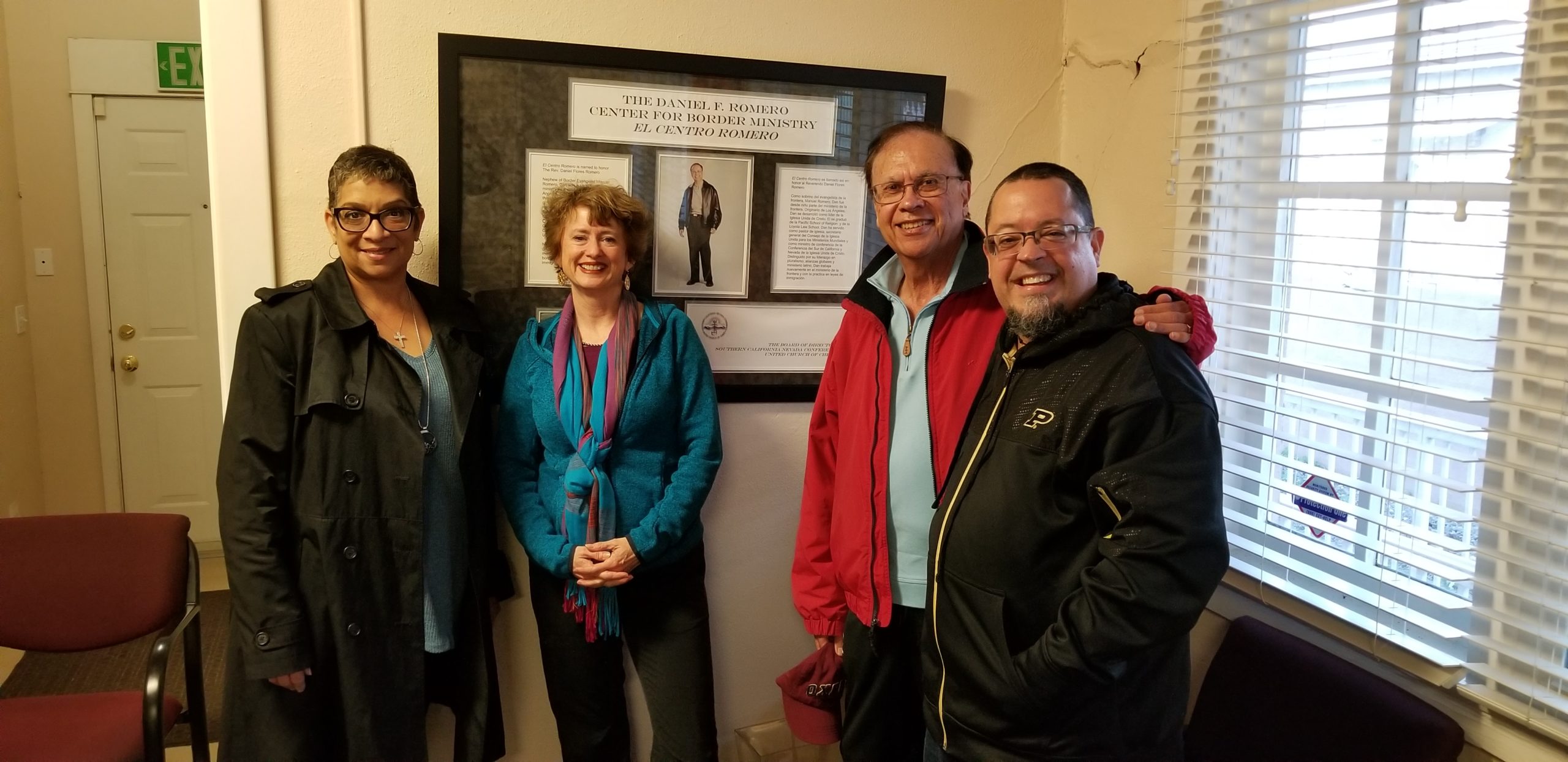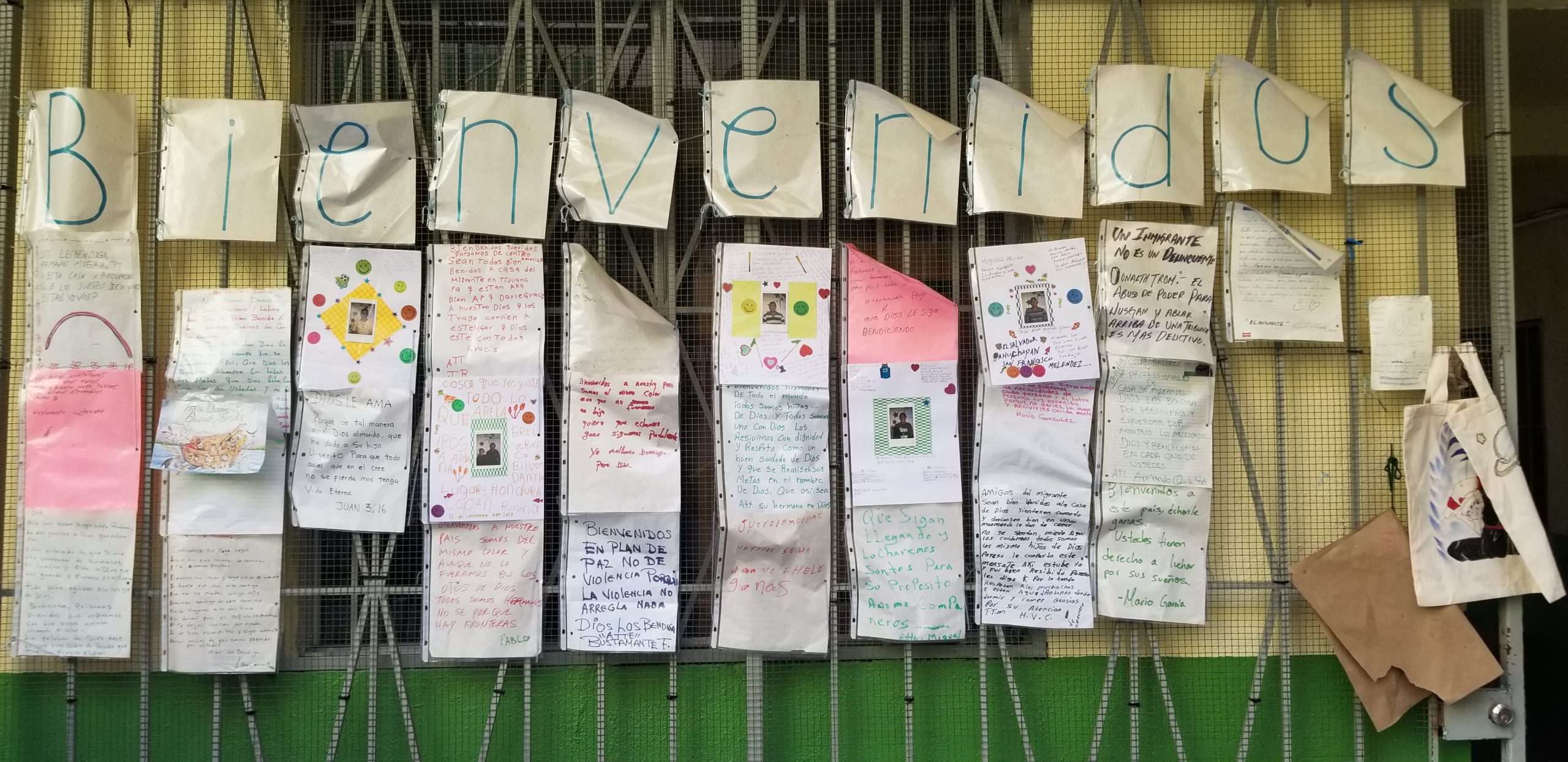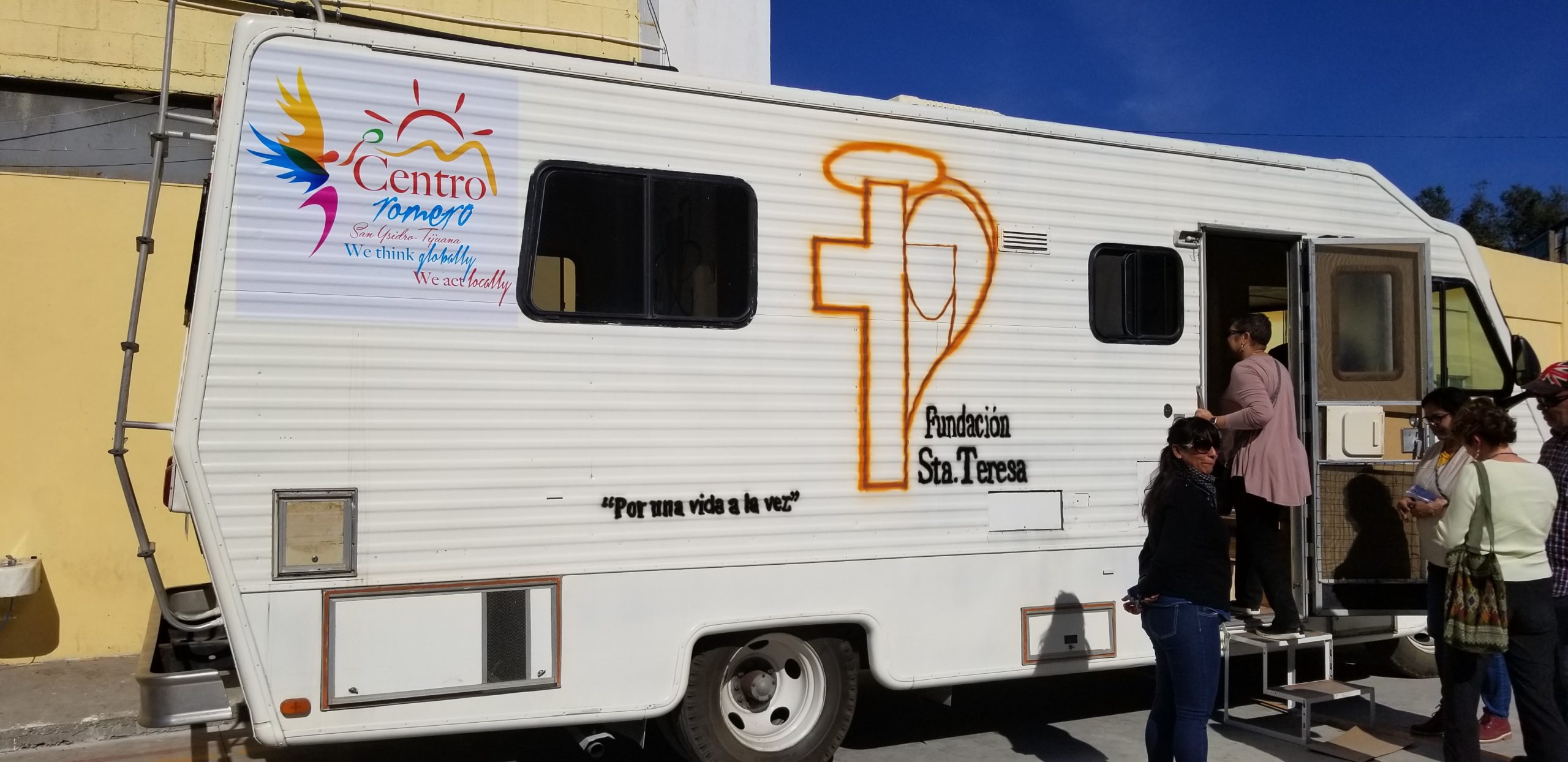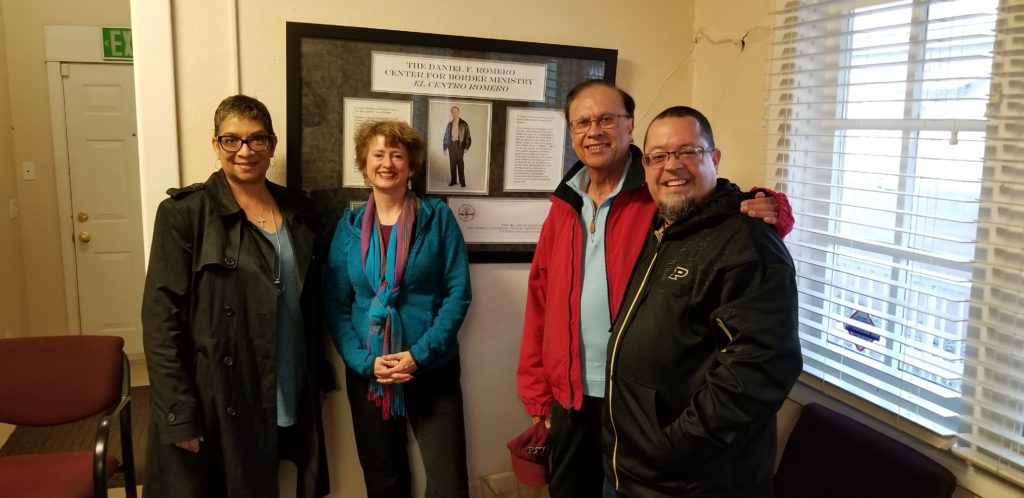Heart and Soul with Immigrants: Disciples of Christ General Ministries visit Tijuana
Global Ministries coordinated a visit to the San Diego/Tijuana Border from January 23-27, 2019. There, the Reverend Angel Luis Rivera-Agosto, Latin America and Caribbean Executive, led a delegation composed of the Reverend Teresa “Terri” Hord-Owens, General Minister and President, and the Reverend Sharon Stanley, Director of Refugees and Immigration Ministries. There, Dr. Carlos Correa and the Reverend Dan F. Romero, Executive Director, and Founder of Centro Romero respectively, gave us a full report of the conditions and challenges of refugees and asylum seekers on that part of the border. He also took us to the places where the migrants arrived, seeking asylum, as well as to shelters where they receive food and medical assistance.

While in San Diego, the delegation visited the offices of the American Civil Liberties Union (ACLU) and held a very informative visit with two advocates there, Sandra Alvarado and Esmeralda Flores. Alvarado and Flores talked to us about the San Diego Rapid Response Network, a group of organizations that gathered to bring comprehensive service to immigrants and refugees around the city. They provide legal services and orientation, as well as psychological support, clothing, accompaniment in the shelters, and financing for bus transportation through the country. Churches in the city also participate by providing donations and shelters. The Reverend Terri Hord-Owens, referring to those services said, “They have a clear understanding of how vulnerable people can be in their needs as they arrive in the U.S.”
At the Tijuana side of the border, the group visited a zone of maquiladoras or manufacturing companies. There they could witness the pollution of the Tijuana River caused by these companies, and saw trucks dumping waste into the river during their visit. Mercury, arsenic and other heavy metals harm the waters that the community of Chilpanzingo accesses for their everyday use. Poor environmental regulations and inexpensive labor are the bedrock for such investments coming from U.S., Canadian, and Chinese companies establishing their factories on the Mexican side of the border. The delegation learned that workers earn $31.57 per week, working six days each week.
 The Reverend Sharon Stanley commented from her experience on the site: I have been amazed, inspired, heartbroken by the ministry sites and community challenges we are seeing. Yesterday at the maquiladoras, we toured the surrounding Chilpanzingo village—set just beside the manufacturing waste and pollution. In years before, Rio Tijuana provided health and life to the village, but now is barely running and is environmentally unsafe. Literally, the villagers must walk through the polluted water, under a tunnel, and go up or down a huge fence up a gully to get to their village—now cut off because of a dividing highway. The Colectivo Chilpanzingo por Justicia Ambiental (Chilpanzingo Collective for Environmental Justice, a Centro Romero ally in the zone) organizes children and adults (especially women) to improve the environmental conditions of the village!
The Reverend Sharon Stanley commented from her experience on the site: I have been amazed, inspired, heartbroken by the ministry sites and community challenges we are seeing. Yesterday at the maquiladoras, we toured the surrounding Chilpanzingo village—set just beside the manufacturing waste and pollution. In years before, Rio Tijuana provided health and life to the village, but now is barely running and is environmentally unsafe. Literally, the villagers must walk through the polluted water, under a tunnel, and go up or down a huge fence up a gully to get to their village—now cut off because of a dividing highway. The Colectivo Chilpanzingo por Justicia Ambiental (Chilpanzingo Collective for Environmental Justice, a Centro Romero ally in the zone) organizes children and adults (especially women) to improve the environmental conditions of the village!
The delegation also could acknowledge the work of accompaniment and seeking of justice conducted by Centro Romero and its partners in Tijuana. In addition to the work of the Colectivo Chilpanzingo por Justicia Ambiental, there are other organizations such as Casa de Los Pobres (House of the Poor) that provide food and medical services for migrants and refugees three days per week, and Casa del Migrante (Home for the MIgrant), which provides shelter, psychological, legal and medical services.
 One of the most important parts of this visit was to see the Centro Romero´s Medical Mobile Unit, sponsored by Global Ministries through funds from Week of Compassion and One Great Hour of Sharing. The Medical Mobile Unit provides medical and dental services for those migrants that cannot or are not willing to visit the shelters, especially those who are victims of human and sex trafficking in the area. Through their medical and dental work, the staff can identify victims of both human and sex trafficking and refer these cases for the proper advocacy and holistic attention according to their specific situations. The mobility of the medical unit allows the medical personnel to cover different areas, especially since the people coming in the Central American Caravan move from place to place throughout the city.
One of the most important parts of this visit was to see the Centro Romero´s Medical Mobile Unit, sponsored by Global Ministries through funds from Week of Compassion and One Great Hour of Sharing. The Medical Mobile Unit provides medical and dental services for those migrants that cannot or are not willing to visit the shelters, especially those who are victims of human and sex trafficking in the area. Through their medical and dental work, the staff can identify victims of both human and sex trafficking and refer these cases for the proper advocacy and holistic attention according to their specific situations. The mobility of the medical unit allows the medical personnel to cover different areas, especially since the people coming in the Central American Caravan move from place to place throughout the city.
The delegation also visited the Iglesia de las Naciones Christian Church, pastored by Lupita Castillo and her husband Luciano Sánchez, and engaged with a network of groups and congregations working with shelters and people in Tijuana.
The delegation could go to both sides of the wall and see the paintings and the art worked by Mexican hands on their side of it. It was vital to bring a message of solidarity to our partner in the zone, as well as to other organizations that are working to bring just and fair treatment to migrants and asylum seekers at both sides of the border. It is with heart and soul that we are committed to the work Centro Romero and other Global Ministries partners have on both sides of the U.S./Mexican Border. Global Ministries welcomes gifts in support of Centro Romero – please put Centro Romero in the Project/Partner box if giving online or in the memo line if giving by check. Gifts also are welcome to One Great Hour of Sharing (UCC) for humanitarian responses within the United States in the asylum-seeking crisis, and to Week of Compassion (Disciples) with the designation Refugees.

